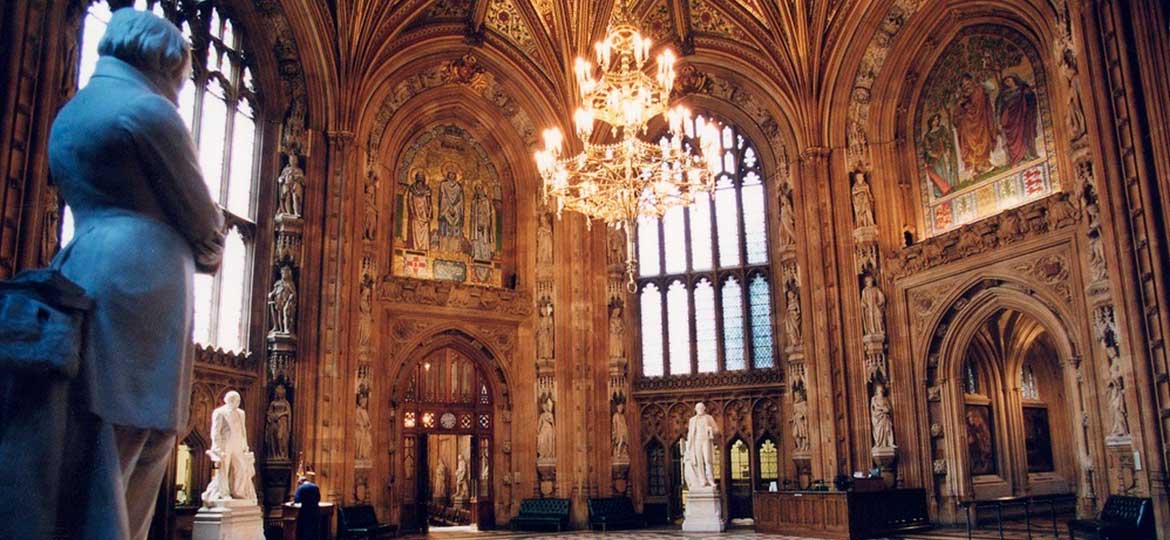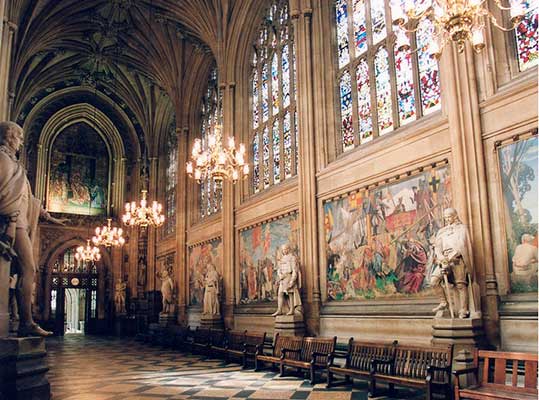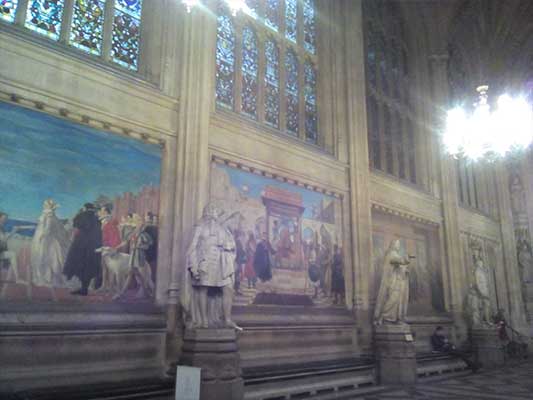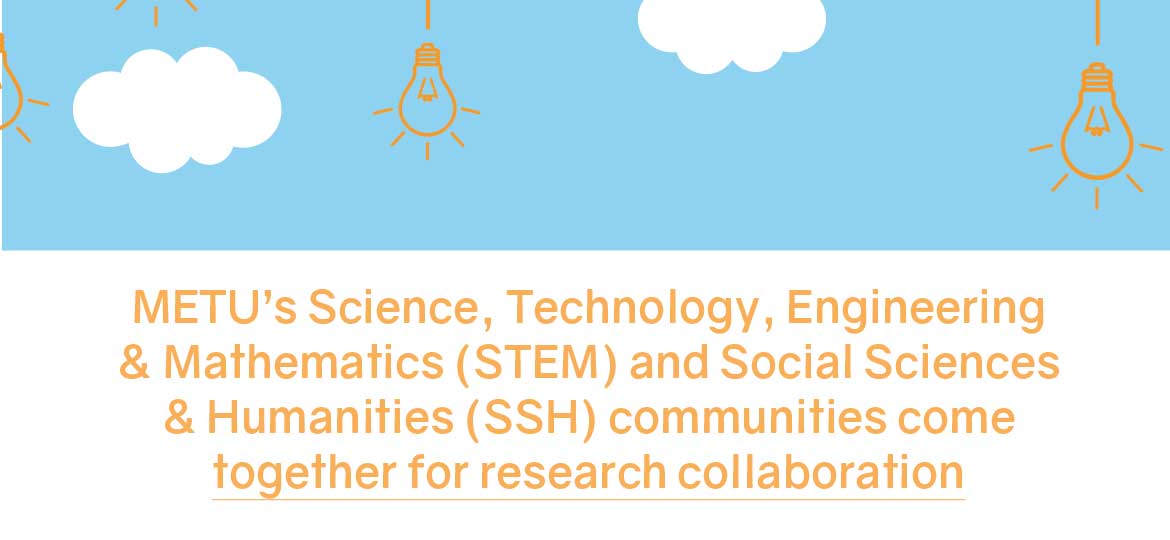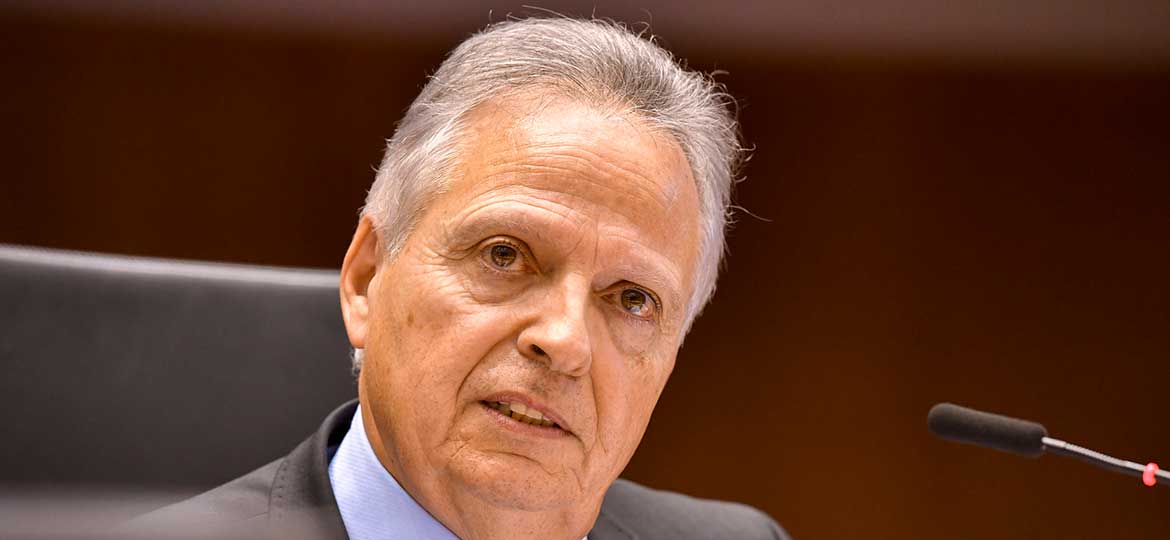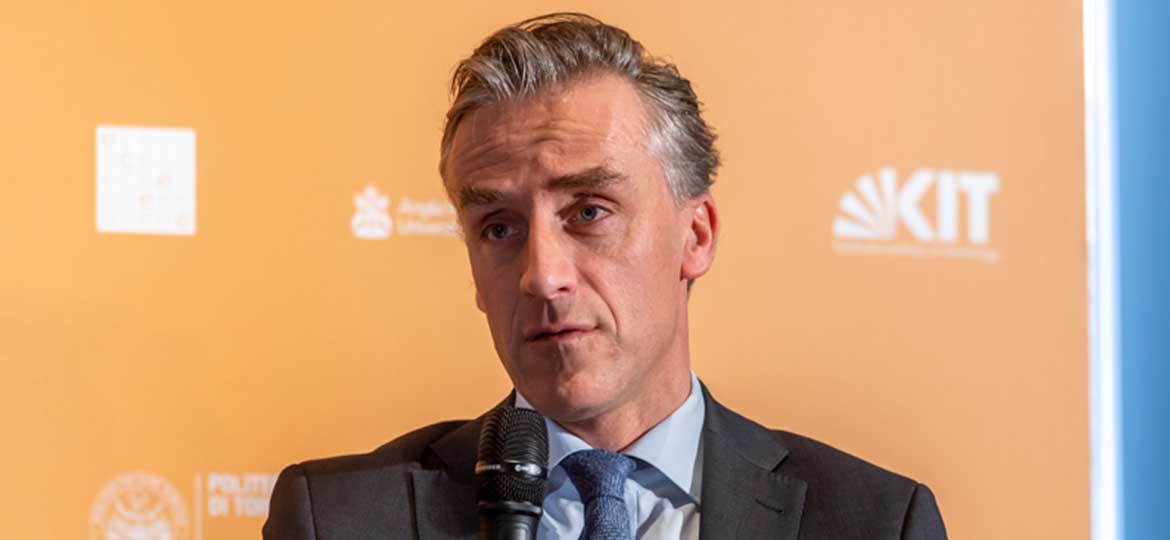By Tina Schivatcheva, PhD researcher from Free University Berlin
‘Alice in Westminster: policy meets technology (EURECA project internship, part II)
The 14th EURECA workshop, which took place in London in early February, helped discuss and summarise the lessons learned from evaluating more than 350 data centres across Europe. Formally my EURECA internship took place in December, 2017, but I was happy to volunteer in assisting with the workshop delivery even though it took place outside the formal internship period. The international workshop had a distributed format with plenaries taking place in 3 locations: an academic one – at the University of East London Stratford Campus, a business one – at the London Business Design Centre, and also in the splendid surroundings of the UK Westminster Parliament. The unique atmosphere of each of these surroundings contributed towards an enriched understanding of the institutional environments, represented by the diverse groups of workshop participants and stakeholders in the greening of the modern data centres.
The event brought together key public and private sector European experts and thought leaders to discuss innovation in public sector digital infrastructure and energy efficiency. Among the topics, which were discussed were innovation procurement, data centre energy efficiency, and environmental sustainability. The workshop welcomed a wide range of participants: policy makers and senior government civil servants from the UK and from abroad, including representatives of the European Parliament, ICT executives, IT managers, policy makers, energy managers, data centre managers, procurement professionals and researchers. Animated discussion highlighted the scope of the change, which has taken place in the data centre industry.
Workshop participants reflected on the lessons from the narrowly techno-functionalist past of the techno-sciences and information technology. ‘A data centre is there to produce data, not to be green’ – initially this had been the thinking of the industry experts and technology managers. At that time issues, such as energy efficiency, renewable energy utilization and renewable energy production had not been seen as a key business priority. However in the data centre science and technology field, five years is a very long time. Now ideas that a data centre should not only be increasing its energy efficiency, but also producing renewable energy, have become some of the leading design and management considerations. The industry has recognized that it needs to meet the rising sustainability expectation of the society and it is making efforts to address them.
The discussion about the desirable future goals was positive and optimistic. The participants were aware that data centres include not only technology and software, but also the human relations both within the centres, as well as these with the broader society. Lessons learned were shared both in terms of technological change, and with regards to the governing of this change. A valuable governance lesson was presented by a senior government official, who advised: ‘Do not tell the people what to do, but invite them to co-develop the future’.
For the benefit of the readers, I would now like to briefly share some of the major workshop conclusions, which encompass both technological and policy solutions to the challenge of creating greener data centres, which utilize and possibly produce renewable energy. Amongst the most significant workshop findings was that optimizing IT equipment (e.g. hardware refresh or increased utilization) can yield more energy savings than decreasing the PUE (Power usage effectiveness (PUE) – a ratio indicating how efficiently a computer data centre uses energy) (Bashroush, 2018). From a managerial perspective it was recommended a gradual transition towards increasingly greater renewable energy share into the total energy supply of the data centres.This renewable energy could be both produced on-site, bought directly from suppliers when available – e.g. through dedicated tariff, a claim can be made on a proportion of renewable energy in the grid, or data centres could sponsor greening projects for every KWh consumed (e.g. via tree planting projects), etc. As for the larger in scale and longer-term policy goals, the participants shared their commitment to assist in the development of European standards, best practices and polices related to energy efficiency and renewable energy consumption/production in data centres.
I am grateful to SHAPE ENERGY for the internship with EURECA, which made possible a journey of discovery, which has led me from the Wonderland of science and technology to the halls of Westminster. I am also grateful to Dr. Rabih Bashroush, a senior scholar at the University of East London and the EURECA coordinator in the UK, who has guided my journey into this exciting world. The experience has sparked in me a genuine interest in computer science and technology, and in exploring further their complex interactions with the social sciences and humanities. Most importantly: even though I had left Wonderland, I have still retained a part of the wonder.
Sources:
Bashroush, Rabih, 2018,A Comprehensive Reasoning Framework for Hardware Refresh in Data Centres, IEEE TRANSACTIONS ON SUSTAINABLE COMPUTING, VOL. XX, NO. XX, MONTH 201X.

